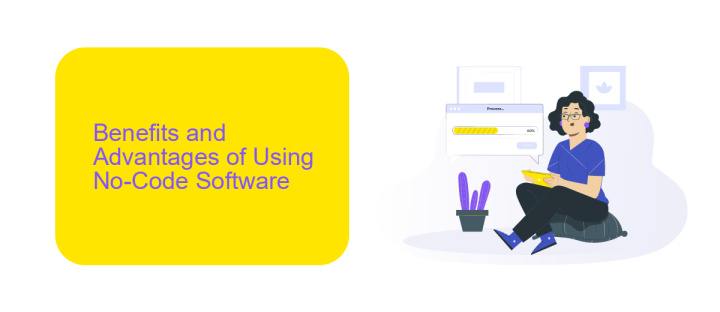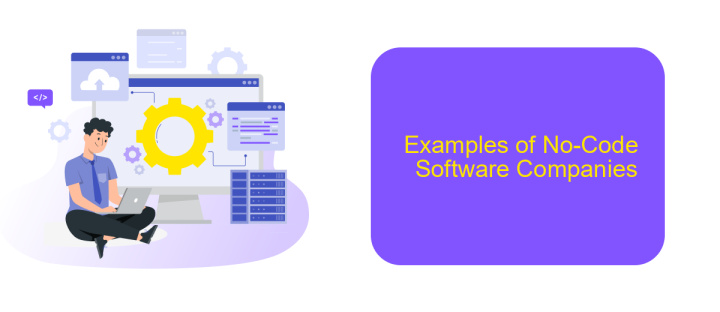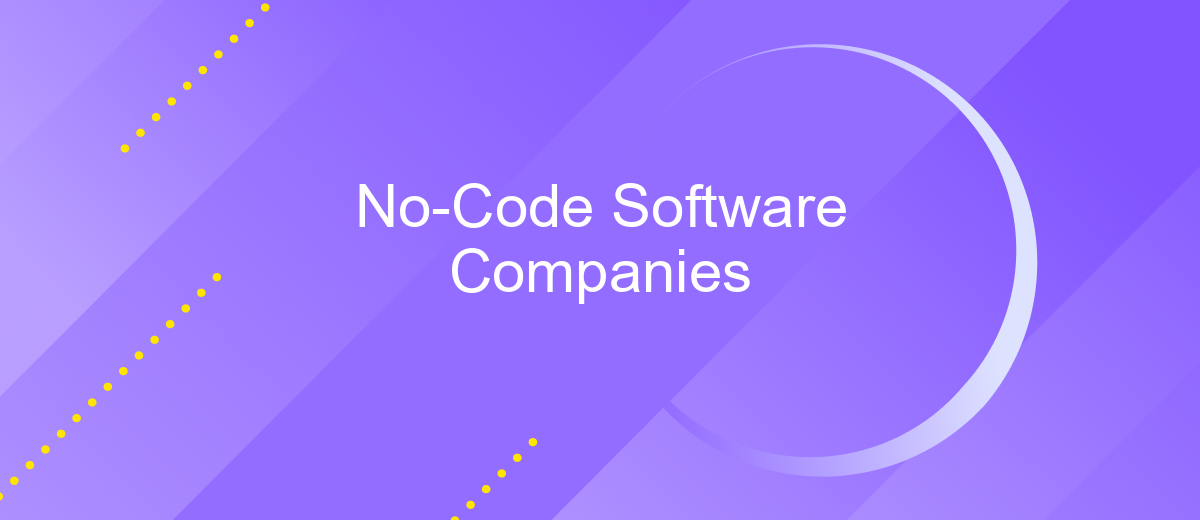No-Code Software Companies
In today's fast-paced digital landscape, no-code software companies are revolutionizing the way businesses and individuals create applications. By eliminating the need for traditional coding skills, these platforms empower users to develop robust, customized solutions quickly and efficiently. This democratization of technology is not only accelerating innovation but also making software development accessible to a broader audience.
Overview of No-Code Software
No-code software platforms are revolutionizing the way businesses approach application development. These tools enable users to create, customize, and deploy applications without the need for traditional coding skills. This democratization of software development allows non-technical users to participate in the creation process, significantly reducing time and costs associated with conventional development methods.
- Drag-and-drop interfaces for easy design
- Pre-built templates for various use cases
- Integration capabilities with existing systems
- Real-time collaboration features
- Automated workflows and task management
One notable example is ApiX-Drive, a no-code platform that specializes in integrating various services and applications. With ApiX-Drive, users can effortlessly connect different software tools, automate data transfers, and streamline workflows without writing a single line of code. This makes it easier for businesses to optimize their operations and focus on growth rather than technical complexities.
Benefits and Advantages of Using No-Code Software

No-code software platforms offer numerous benefits, making them an attractive option for businesses of all sizes. One of the primary advantages is the significant reduction in development time and costs. By eliminating the need for traditional coding, companies can quickly build and deploy applications, allowing them to respond faster to market demands. This democratization of software development empowers non-technical team members to contribute directly to projects, fostering innovation and collaboration within the organization.
Another key benefit is the ease of integration with other tools and services. Platforms like ApiX-Drive facilitate seamless connections between various applications, enabling automated workflows and data synchronization without the need for complex coding. This ensures that businesses can maintain a cohesive tech ecosystem, improving operational efficiency and reducing the likelihood of errors. Additionally, the flexibility and scalability of no-code solutions allow companies to adapt and grow their digital infrastructure as their needs evolve, ensuring long-term sustainability and success.
Considerations and Limitations of No-Code Software

No-code software platforms offer numerous benefits, but they also come with certain considerations and limitations. These tools empower users to create applications without writing code, yet there are factors to keep in mind.
- Scalability: No-code solutions may struggle with scaling as your business grows.
- Customization: While no-code platforms offer various templates, they might lack the deep customization options that traditional coding provides.
- Integration: Integrating with other software can be challenging. Tools like ApiX-Drive can help streamline these integrations, but there are still limitations.
- Performance: Applications built on no-code platforms might not perform as efficiently as those developed with custom code.
- Security: No-code platforms may have security vulnerabilities that could expose your data to risks.
Despite these limitations, no-code software remains a powerful tool for quickly developing applications, especially for small to medium-sized projects. Careful consideration of these factors can help you decide if a no-code solution is right for your needs.
Examples of No-Code Software Companies

No-code software companies have revolutionized the tech landscape by enabling users to create applications without writing a single line of code. These platforms are designed to be user-friendly, allowing individuals and businesses to develop software solutions swiftly and efficiently.
One of the key advantages of no-code platforms is their ability to integrate with various services seamlessly. For example, ApiX-Drive offers a robust solution for connecting different applications and automating workflows without the need for complex coding knowledge.
- Bubble: A comprehensive platform for building web applications.
- Adalo: Focuses on creating mobile applications with ease.
- ApiX-Drive: Specializes in automating integrations between various services.
- Zapier: Known for connecting apps and automating repetitive tasks.
- Webflow: A no-code platform for designing and launching websites.
These companies provide a range of tools that cater to different needs, from web and mobile app development to automation and integrations. By leveraging these no-code platforms, businesses can significantly reduce development time and costs, enabling them to focus on innovation and growth.


Future of No-Code Software Development
The future of no-code software development looks incredibly promising, as it continues to democratize the creation of digital solutions. With advancements in artificial intelligence and machine learning, no-code platforms are becoming more sophisticated, enabling users to build complex applications with greater ease. This evolution is not only empowering non-technical users to bring their ideas to life but also allowing developers to focus on more intricate and innovative tasks, thus accelerating the overall pace of technological progress.
Moreover, the integration capabilities of no-code platforms are expanding, making it easier to connect various tools and services seamlessly. For instance, services like ApiX-Drive are revolutionizing how integrations are managed, offering a user-friendly interface to automate workflows and synchronize data across multiple applications. This level of connectivity ensures that businesses can operate more efficiently, reducing the need for manual intervention and minimizing errors. As no-code technology continues to evolve, it is set to play a pivotal role in shaping the future of software development, making it more accessible, efficient, and innovative.
FAQ
What is No-Code software?
Who can benefit from using No-Code platforms?
Can No-Code platforms handle complex integrations?
Are No-Code platforms secure to use?
What are the limitations of No-Code platforms?
Routine tasks take a lot of time from employees? Do they burn out, do not have enough working day for the main duties and important things? Do you understand that the only way out of this situation in modern realities is automation? Try Apix-Drive for free and make sure that the online connector in 5 minutes of setting up integration will remove a significant part of the routine from your life and free up time for you and your employees.

